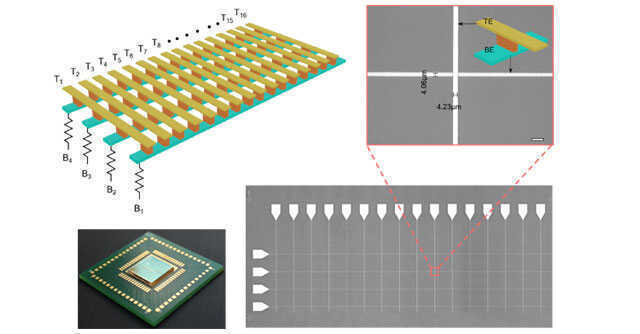
Indian researchers build computing platform for next-gen devices, data centres


Researchers at the Indian Institute of Sciences (IISC) have developed an energy-efficient computing platform that uses memristors instead of the conventional CMOS (complementary metal oxide semiconductor) fabrication process for building electronic circuits.
Unlike CMOS, which processes and stores data in different locations in an integrated circuit and consumes more energy for communication, memristors process as well as store data in the same location, resulting in improved speed and efficiency.
“We are resolving this problem by performing both computation and storage at the same physical location,” said Sreetosh Goswami, assistant professor, CeNSE (Centre for Nano Science and Engineering) at IISC.

According to Goswami, the molecular circuit element can itself capture complex logic functions and carry out in-memory computations in fewer steps. He pointed out that the new platform can allow companies to build products that are more stable than even flash memories.
Researchers at CeNSE have published two studies on the new computing platform. They were published in a peer-reviewed journal called Advanced Materials.
To build the compute platform, the research team at CeNSE used metal organic complexes, which are like metal sponges that can transfer electrons for billions of cycles without degradation, said Goswami.

During the tests, the researchers found that the new platform offers 93 times faster-operating speed, and 47 times higher energy efficiency. In the next stages, they are planning to connect it to a touchscreen smartphone to see how efficiently it can process the stored data.
Researchers also feel that this will overcome the limitations of Moore’s law, the underlying principle used to design chips. According to Moore’s law, adding more transistors results in better performance. To fit them into hand-held computing devices chipmakers are making transistors smaller. However, squeezing the size of the transistor is becoming a challenge due to the limitations of silicon.
The tech industry has been looking at alternatives to silicon and technologies like CMOS.

“This necessitates the invention of new nanoscale device constructs to enable Moore’s Law over the next few decades,” said Navakanta Bhat, professor at CeNSE, IISC.
The researchers also believe their study can help the data centre industry reduce its power consumption and resulting carbon emissions.
According to a September report by the International Energy Agency (IEA), global data center electricity consumption in 2021 was 220-320 TWh2, accounting for around up to 1.3% of global electricity demand.

